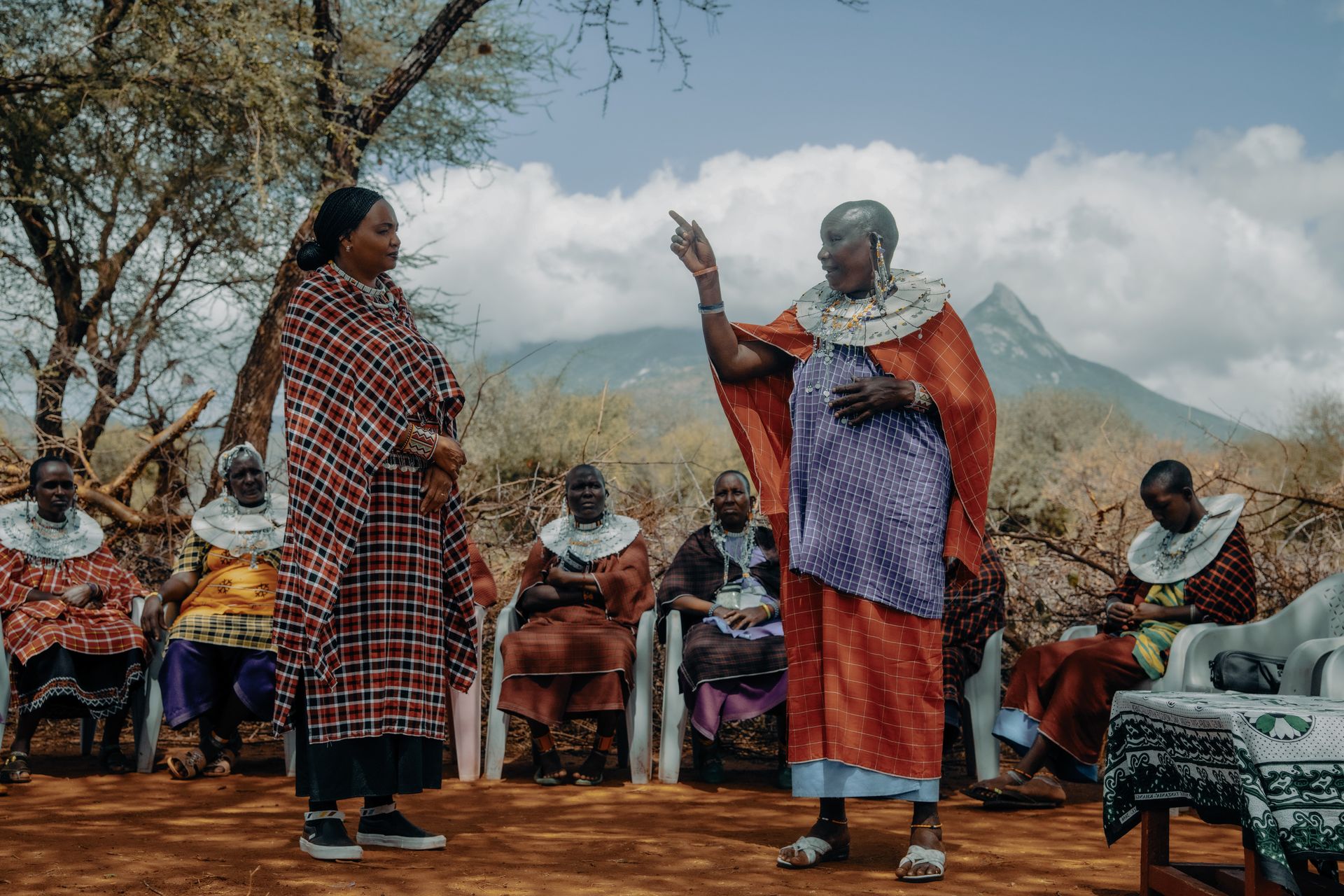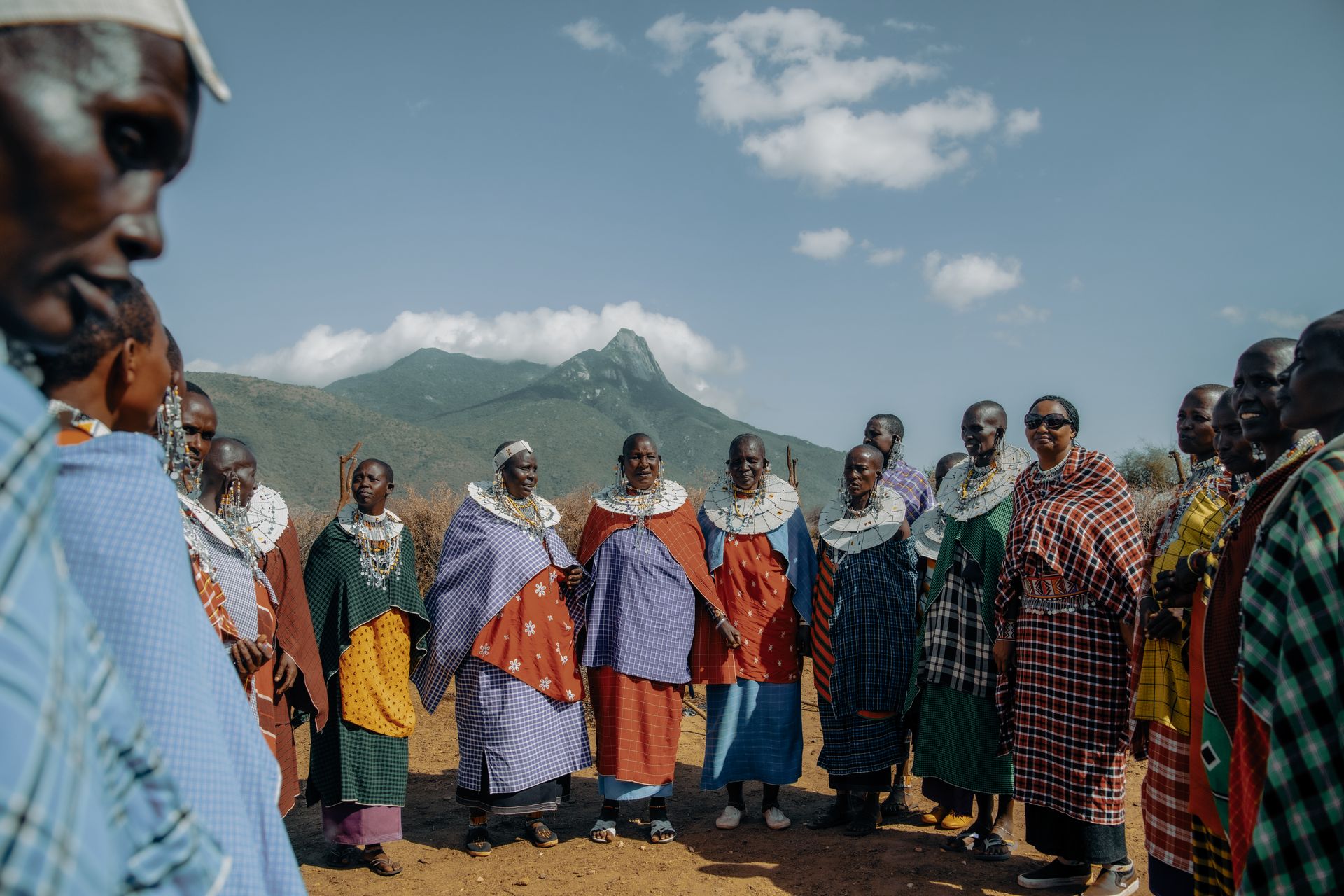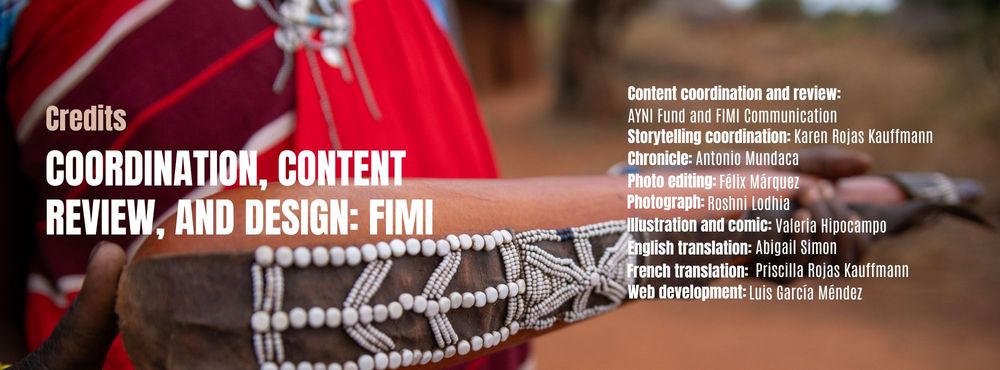A song to accompany
the birth
Tanzania
Ndinini Kimesera Sikar


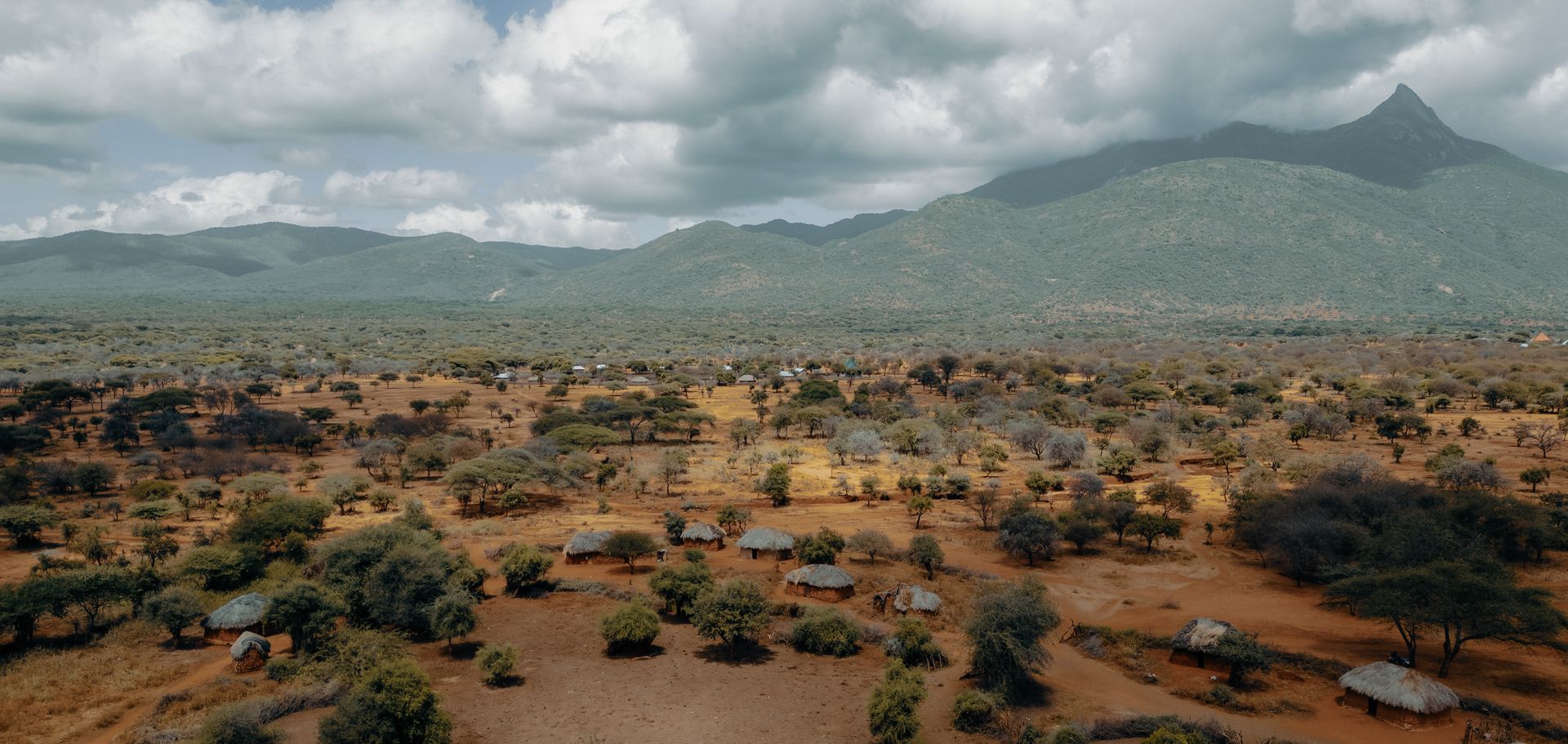
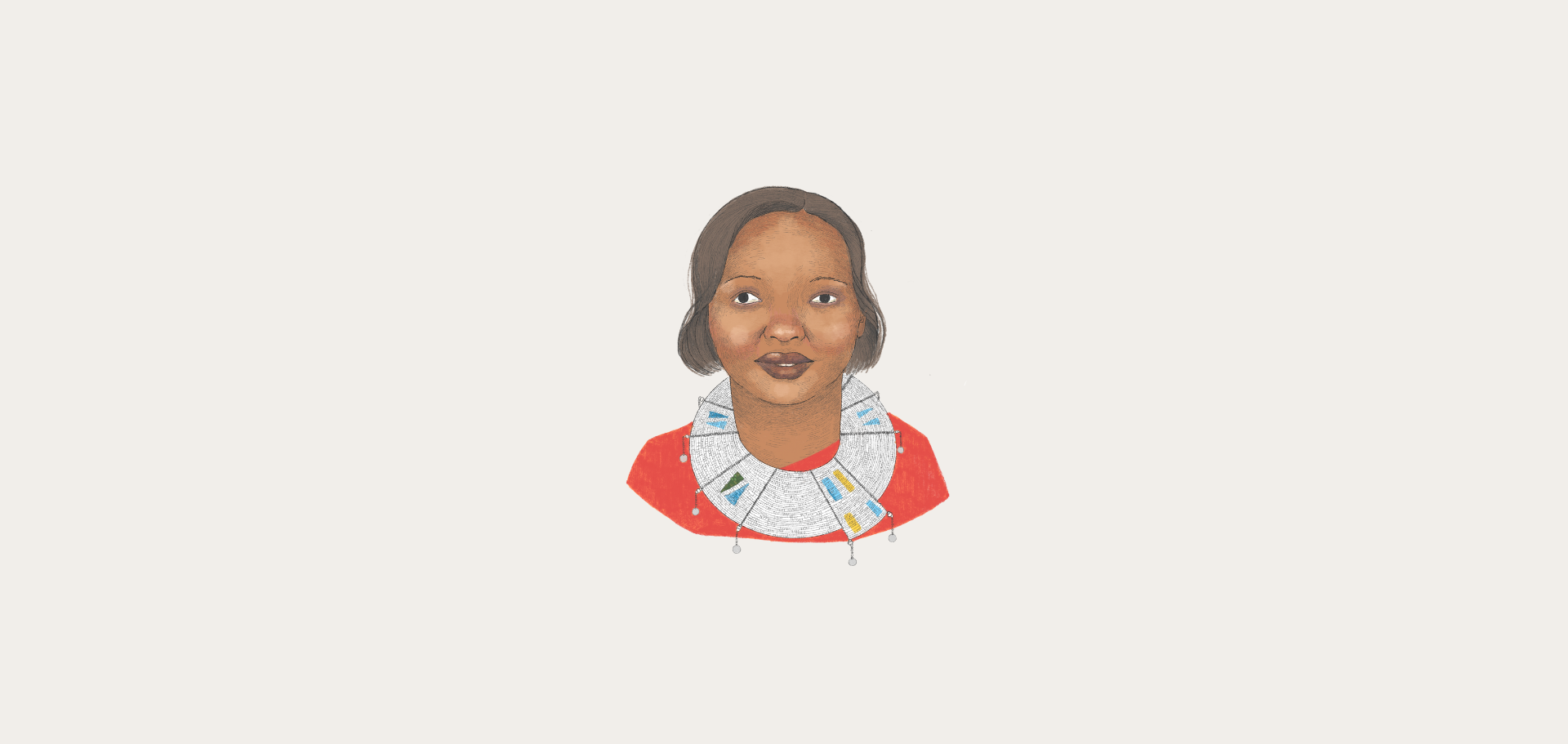
Maasai Women Development Organization (MWEDO), is an organization from Arusha, in Tanzania founded in 2000, whose vision is to achieve the collective empowerment of Maasai Women through economic empowerment, justice in land distribution, access to education and dignified health.
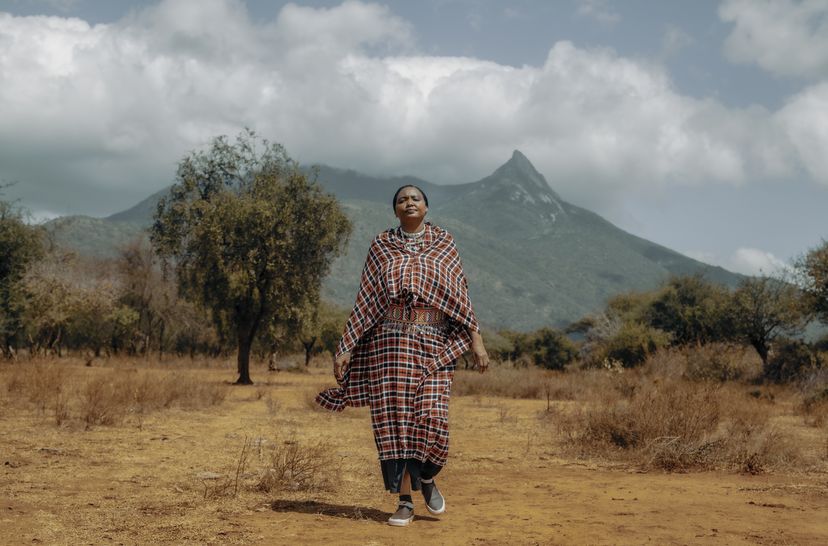
Ndinini Kimesera Sikar was 15 years old the first time she said no, to a forced marriage, arranged with a Maasai man several years older than her. Her parents had agreed to the ceremony because that man dressed in purple, had many cows and was a warrior who had already tried honey and blood 1.
“I said no. They found me another man later. I said no again. They found another husband for me and I said no again.” Ndinini did not know then that she was to become a bridge for tradition and a gateway in the Maa community for thousands of girls to create new worlds with their own voices.
Murui-Muinane indigenous community, Uitoto
This unfolded in a country where very few can do so. She is an optimistic woman sitting next to a circular corral, where white goats graze on sparse, green grass that grows over the rest of the reddened earth. Next to her, children run barefoot and play on open plains and older women follow her and listen to her.
As she walks, there are other women with shaved heads and with colorful beads that cover their chests, red and blue tunics hugging their slim and black bodies, with bright, golden earrings that sharpen their necks. Ndinini says that the Maasai sing to the sacred mountains, to the simple life; that the day they don’t sing will be the end of the earth, that their deceased ancestors arrive every year with the warm winds that come from the sea and the songs are for them a divine connection with Mount Longido.
Ndinini believes that she was able to make decisions about her life because she was her father’s favorite. She uses family love as a protective veil. She confesses that she felt overwhelmed by the cultural pressure, she wanted to stay noble and dignified in her mother’s eyes.
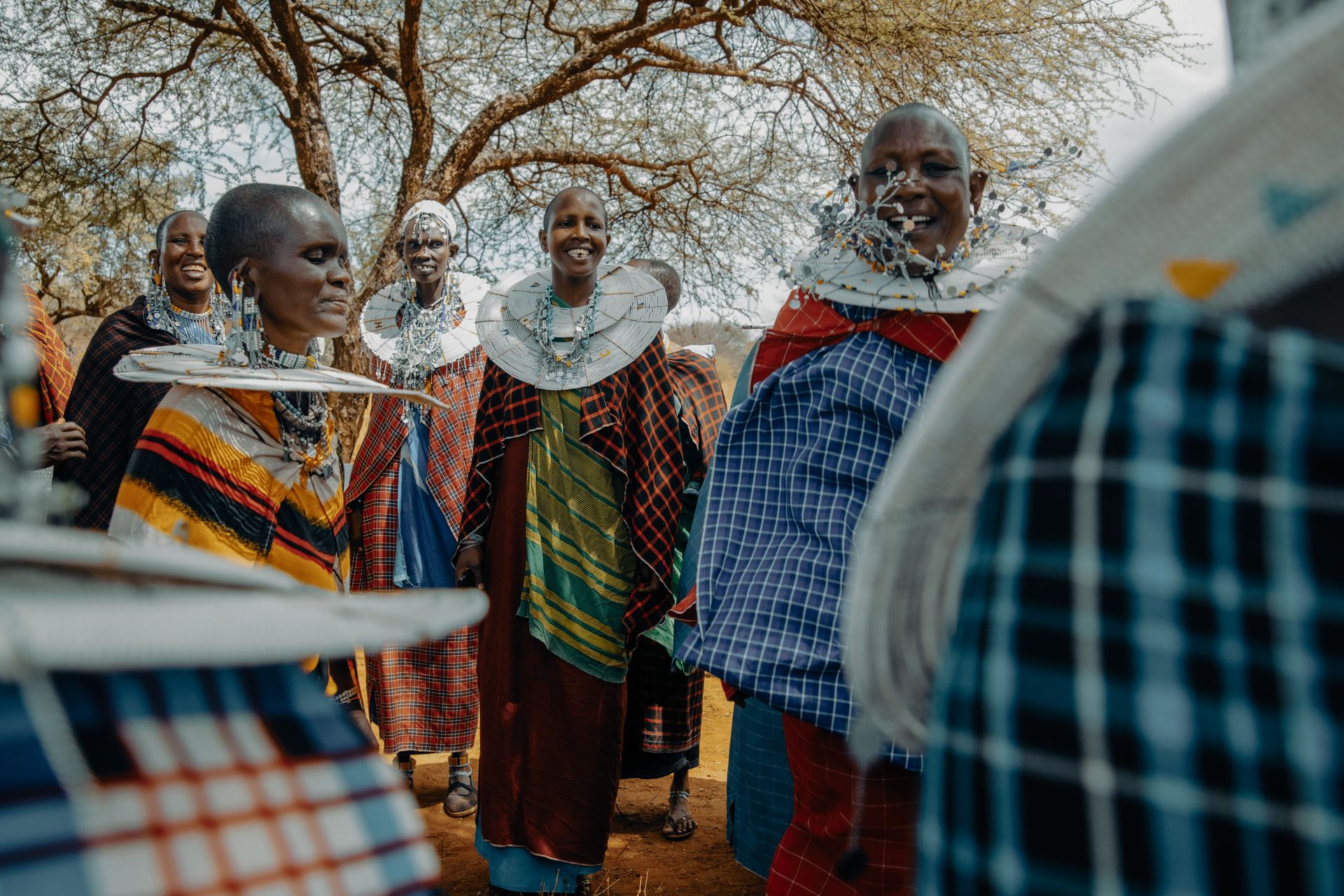
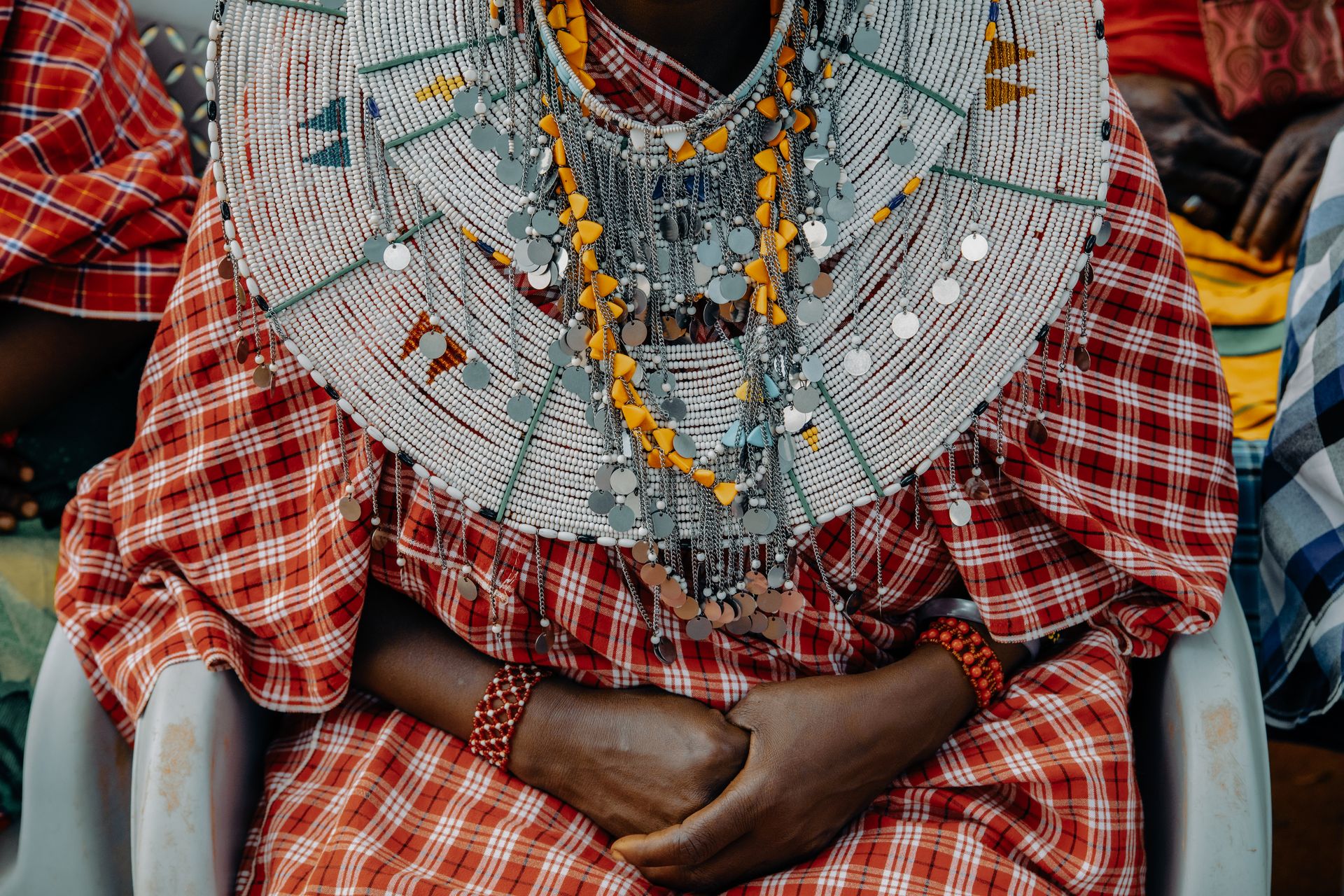
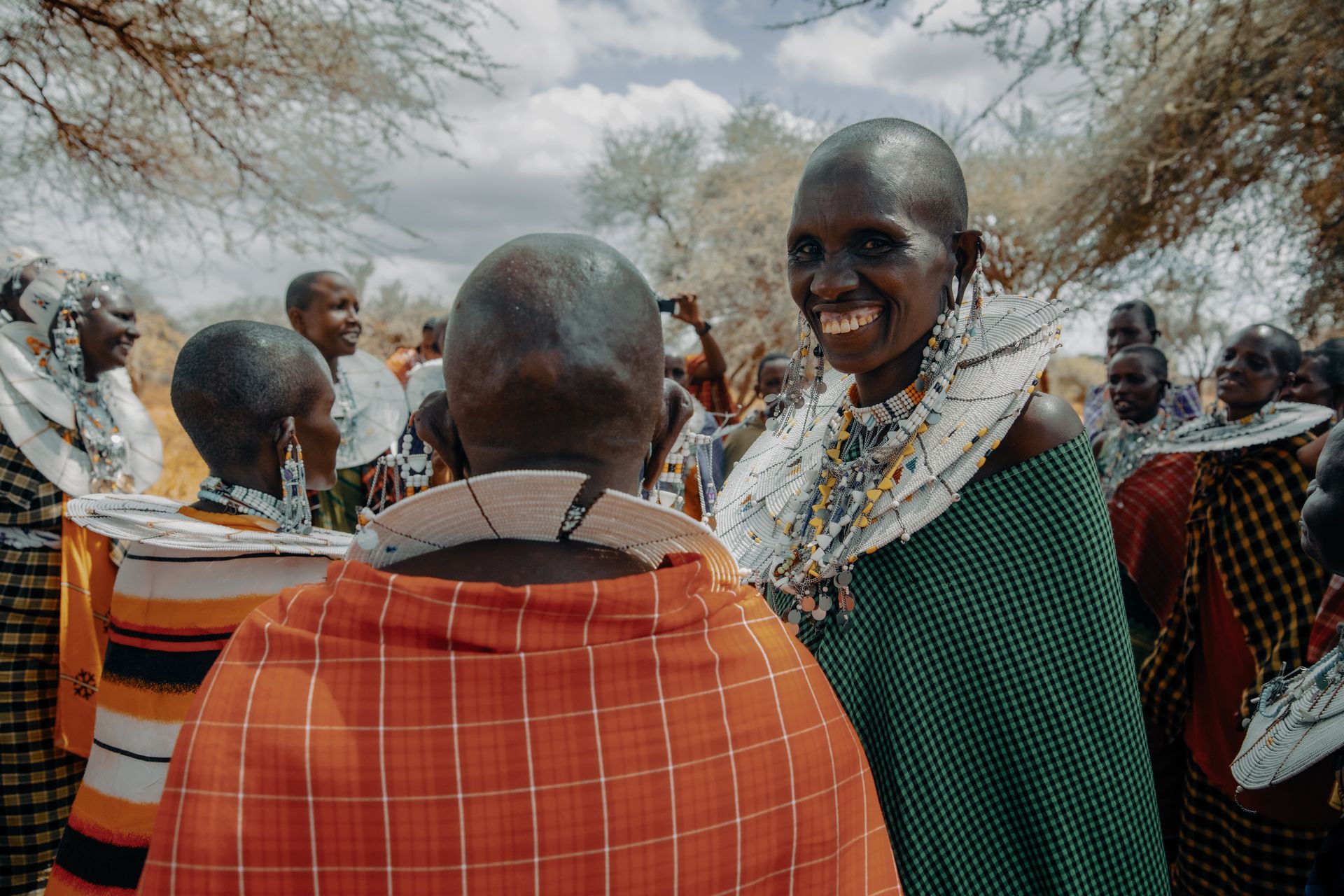
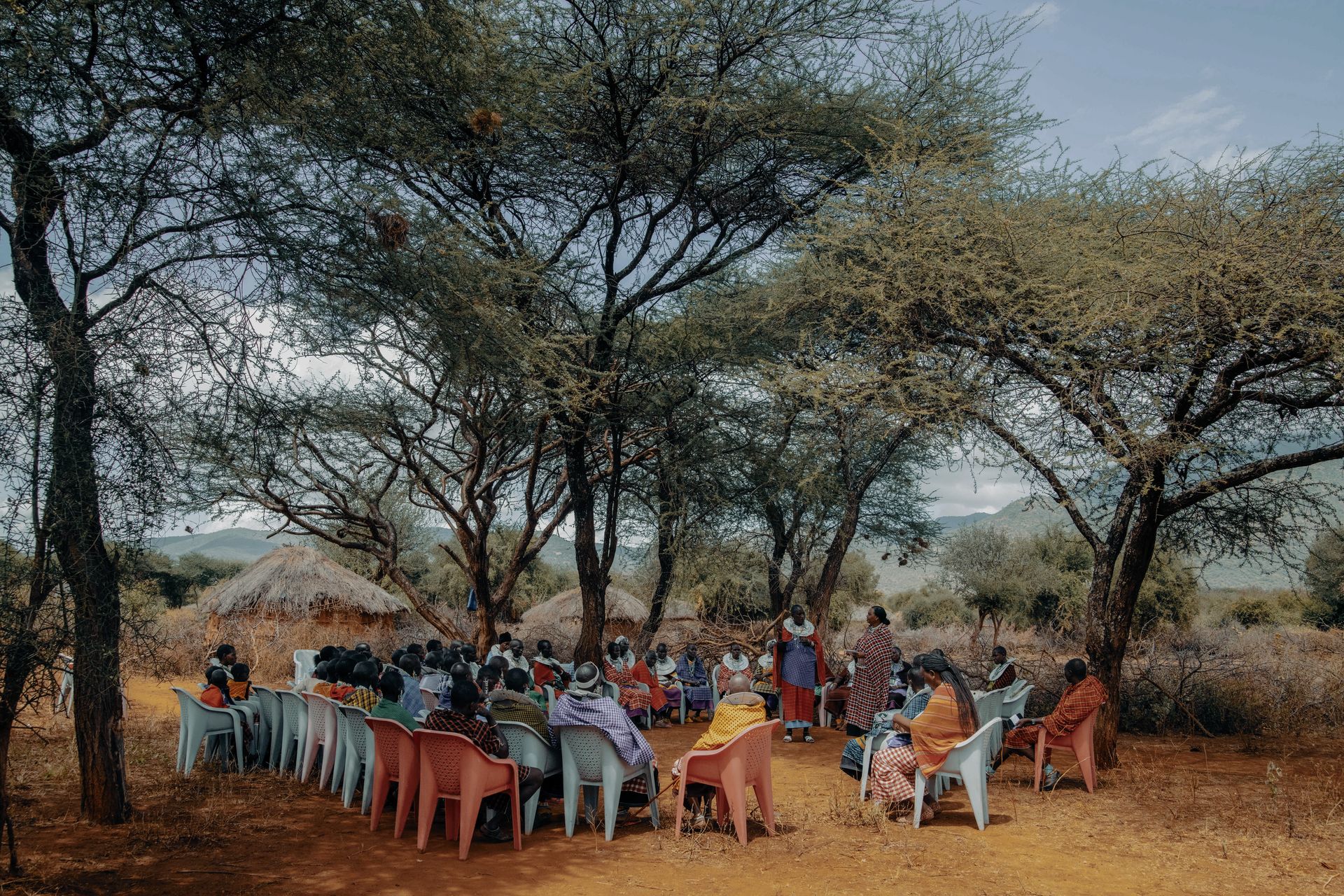
In her there is a battle between ancient ways and modernity as if she wanted to remove the darkness from those territories. She dared to say no three times, in a village in East Africa, that according to historical data, migrated from the Great Rift Valley in the XVII century and for generations has practiced forced marriages. Sometimes arranged since before birth between neighboring families, between nearby communities, because for them the exchange of daughters, given as wives, sustains economic equilibrium, linage and subsistence.
To Overcome with Spirituality
The Maasai are some of the few African peoples that resisted British colonization. The price of this resistance was to lose their most fertile lands between 1904 and 1911. During British rule of Tanzania, authorities expelled the Maasai from Mount Meru and Mount Kilimanjaro. In the decade of 1940, they were forced to abandon mountainous regions near Ngorongoro and were gradually segregated into national parks throughout Eastern Africa.
While the English saw them as an obstacle to their expansion into the Horn of Africa and conquest of the Red Sea, for the Maasai, the English were invaders who had stolen 70 percent of their best lands, and threatened their ancestral way of life and their sacred territory.
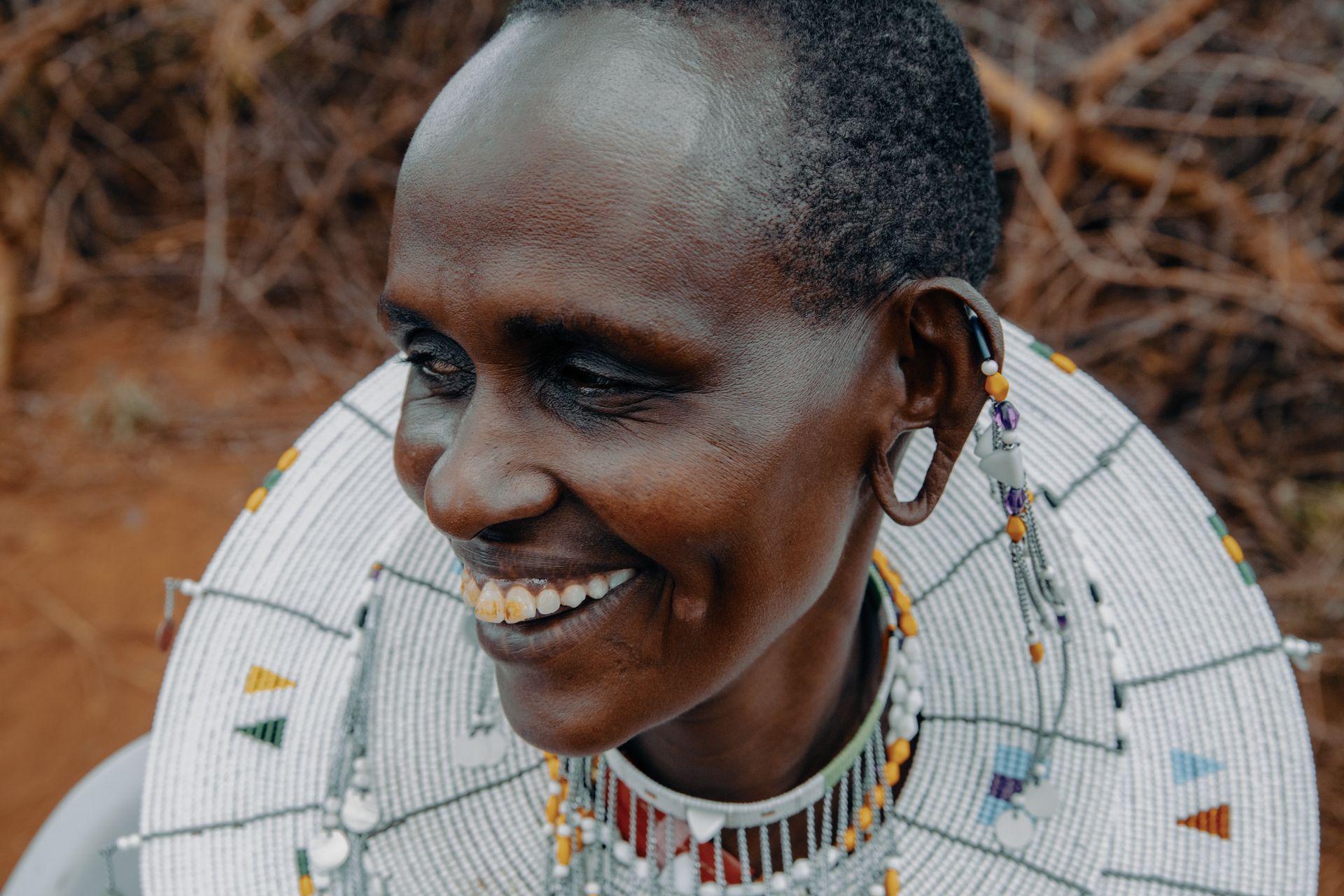
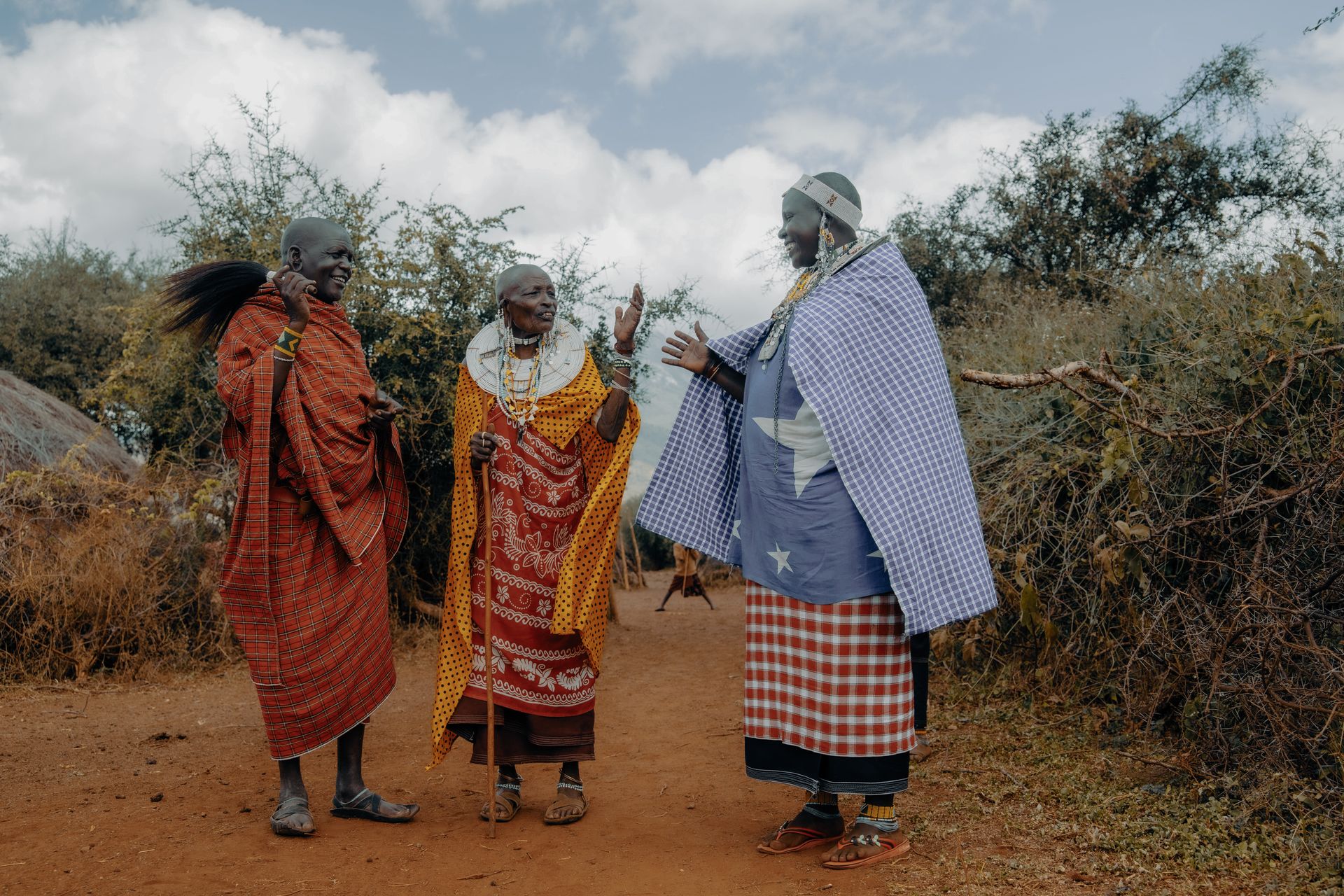
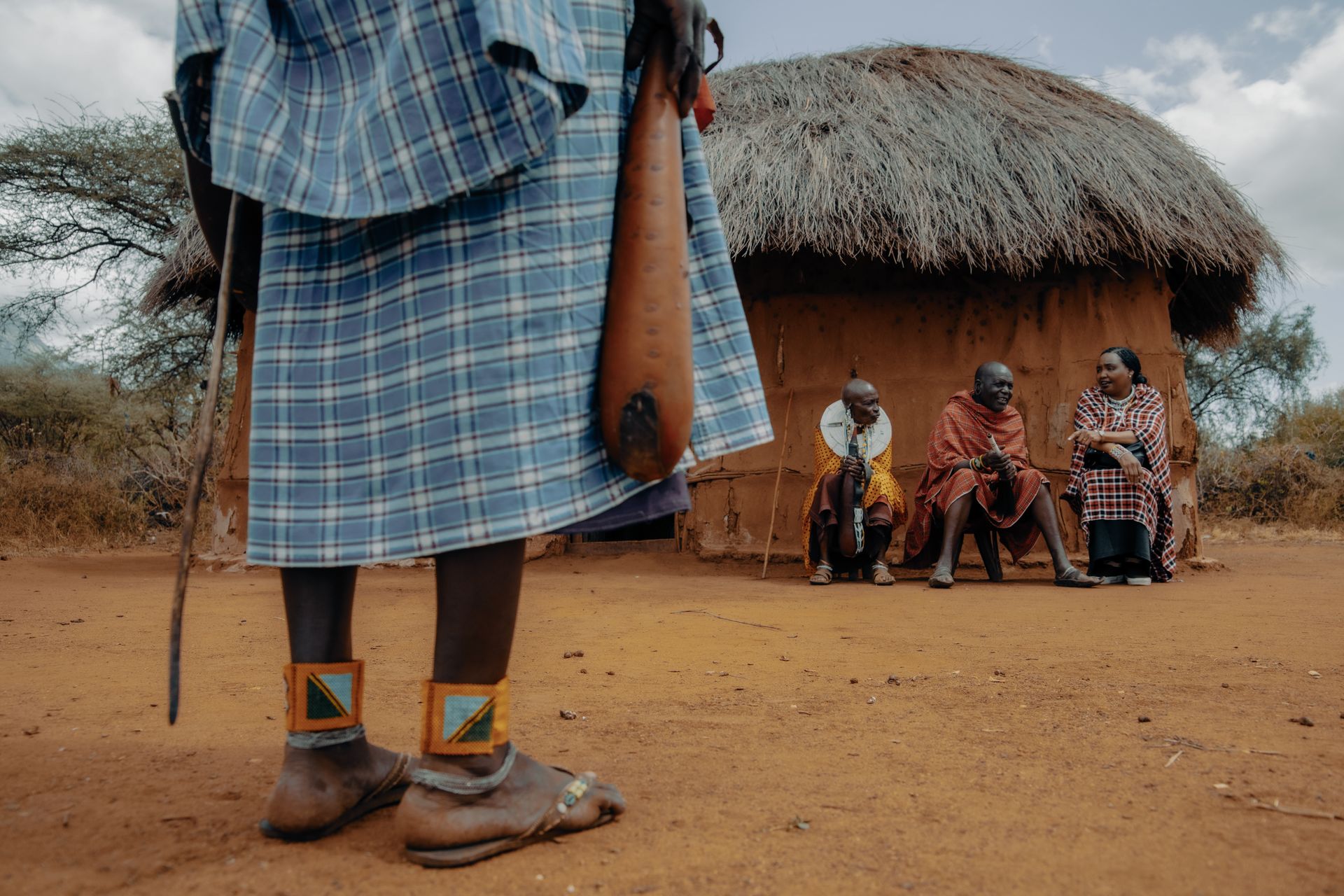
We have to find a way to bring the old into the new. Modern families seem to value personal autonomy more, but traditional families share resources and make collective decisions. Our challenge is to combine these two worlds.
Kimokouwa is a small village that rises up flat in between dark mountains. Above it there is a plateau where Maasai women find refuge. They gather, learn, work, celebrate life. The small city has just over 7 thousand inhabitants and is located in the Longido region, north of Arusha, Ndinini’s hometown.
The road to Namanga crosses mountains and the border that divides Kenya and Tanzania, a colonial-political division and a geographical one that separates the Maasai peoples across the savanna. But they unite with their customs, walks alongside their cattle and their determination to remain seminomadic.
In Kimokouwa, Ndinini Kimesera has been an activist for Indigenous Women’s health and education for 25 years. She recalls that it’s been a long and difficult road to make them understand that they have the strength and determination of lionesses on the mother continent. She insists that all of them can be owners of farms and preserve their traditions, that they are the carriers of an ancient and beautiful lineage, that they carry the blood of generations that resisted the plunder of world powers.
“We have to find a way to bring the old into the new. In modern families they seem to value personal autonomy more, but traditional families share resources, make decisions collectively. Our challenge is to combine these two worlds.” Ndinini smiles often, the segregation of the past and present, she says, can be traversed and overcome with spirituality, ancestral memory and traditional knowledge.
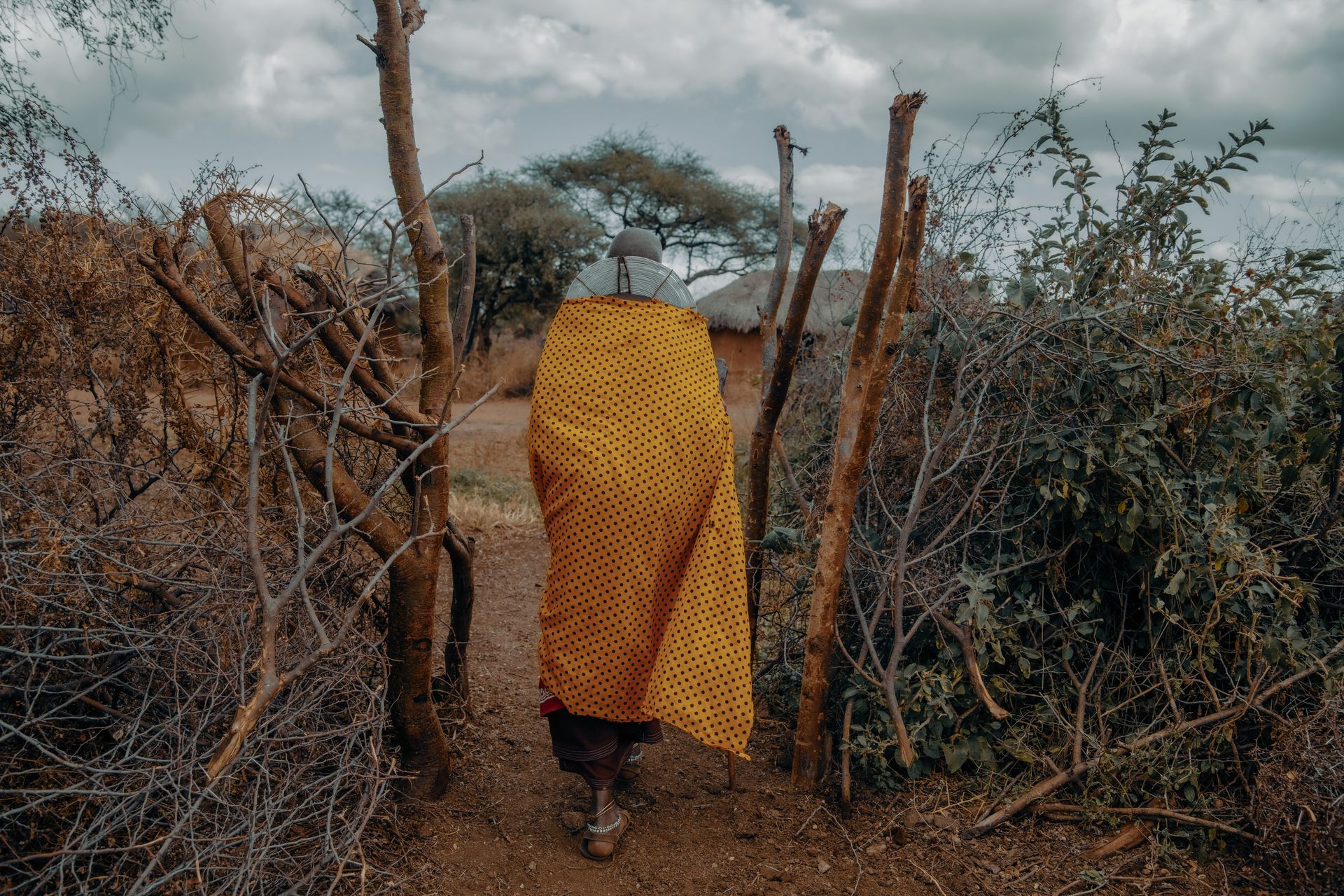
A Daughter of the Boma
Ndinini professes the Cristian religion, but believes in the sacred power of nature. She trusts in the communal potential that mothers practice, in the value of united Indigenous Women that very few people understand in the West, when the Maasai name within their moral rules the meanings of polygamy.
She comes from a family of 38 people, a father, 5 mothers and 32 siblings; a house called enkaji, made of layers of sand, urine, and manure from farm animals mixed with ash, a space where she grew up with a central chimney that kept termites away. Ndinini is the daughter of the boma, that traditional settlement of the Maasai village consisting of a circle of cabins constructed out of branches and covered with straw, a safe space that women make with their own hands to protect their children and the cattle that Enkai 2 gifted them in the beginning of time. Indigenous Women and Girls care for their humble houses in the middle of the plains, helped by thorny bushes that have kept predators at bay for centuries.
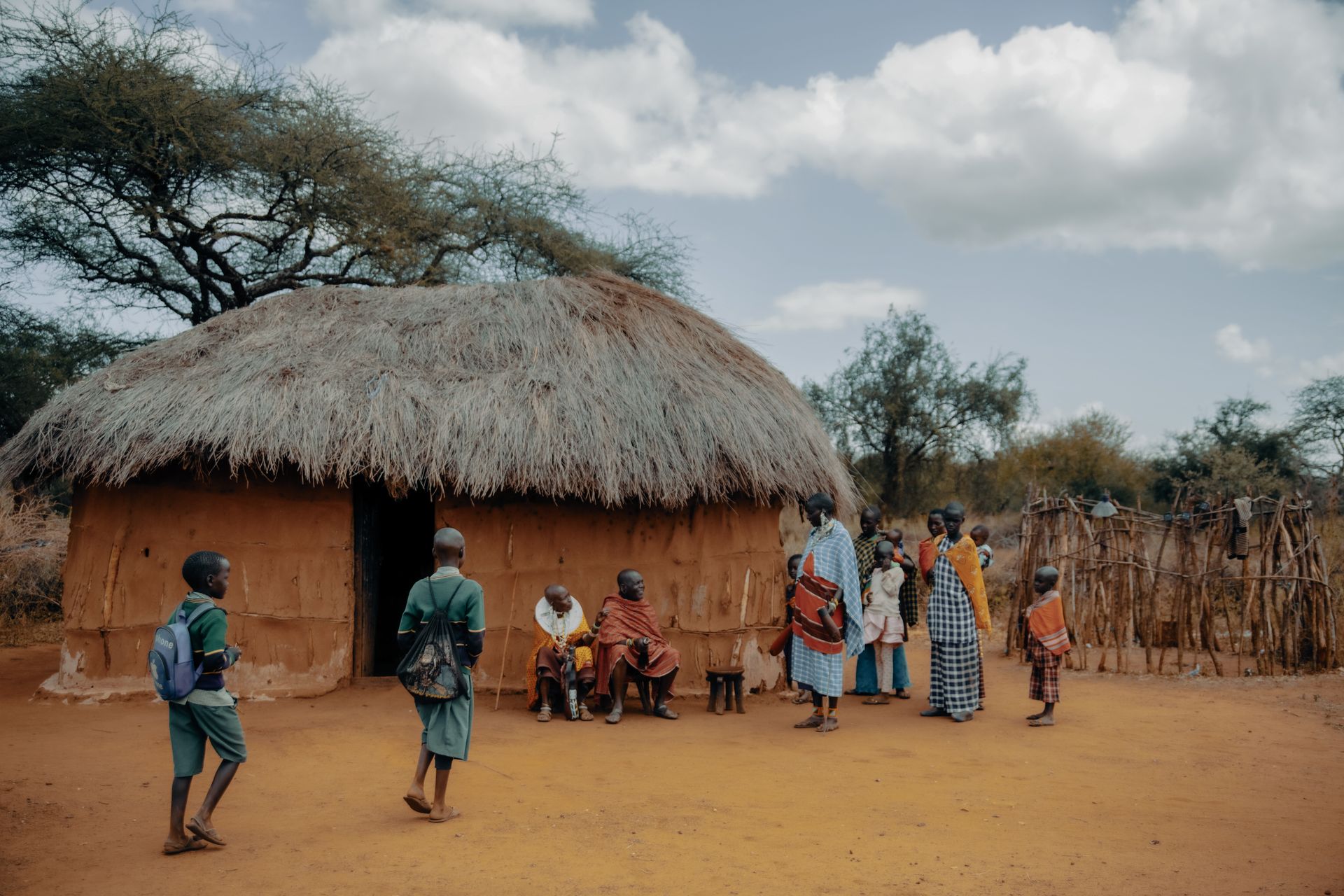
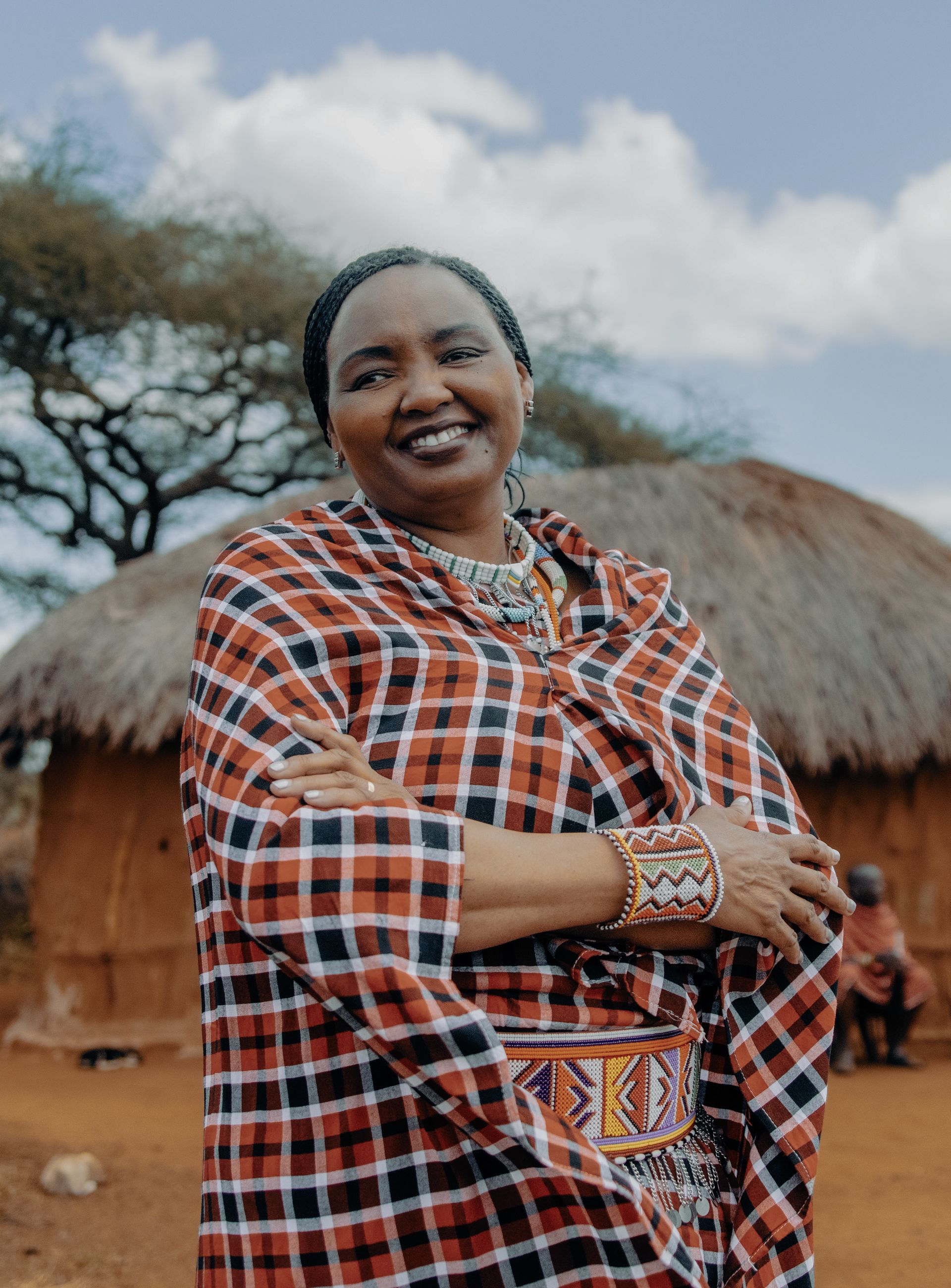
She says that since she was young, she listened to the elders’ stories of Moranes 3 facing lions in the rugged terrain. She listened to stories surrounded by her sisters, girls of 6, 7 and 9 that slept in huts with platforms covered in leather. Small ones tired out by the sun, sleeping in front of the fire, after walking 10 kilometers in dry dust looking for subterranean rivers.
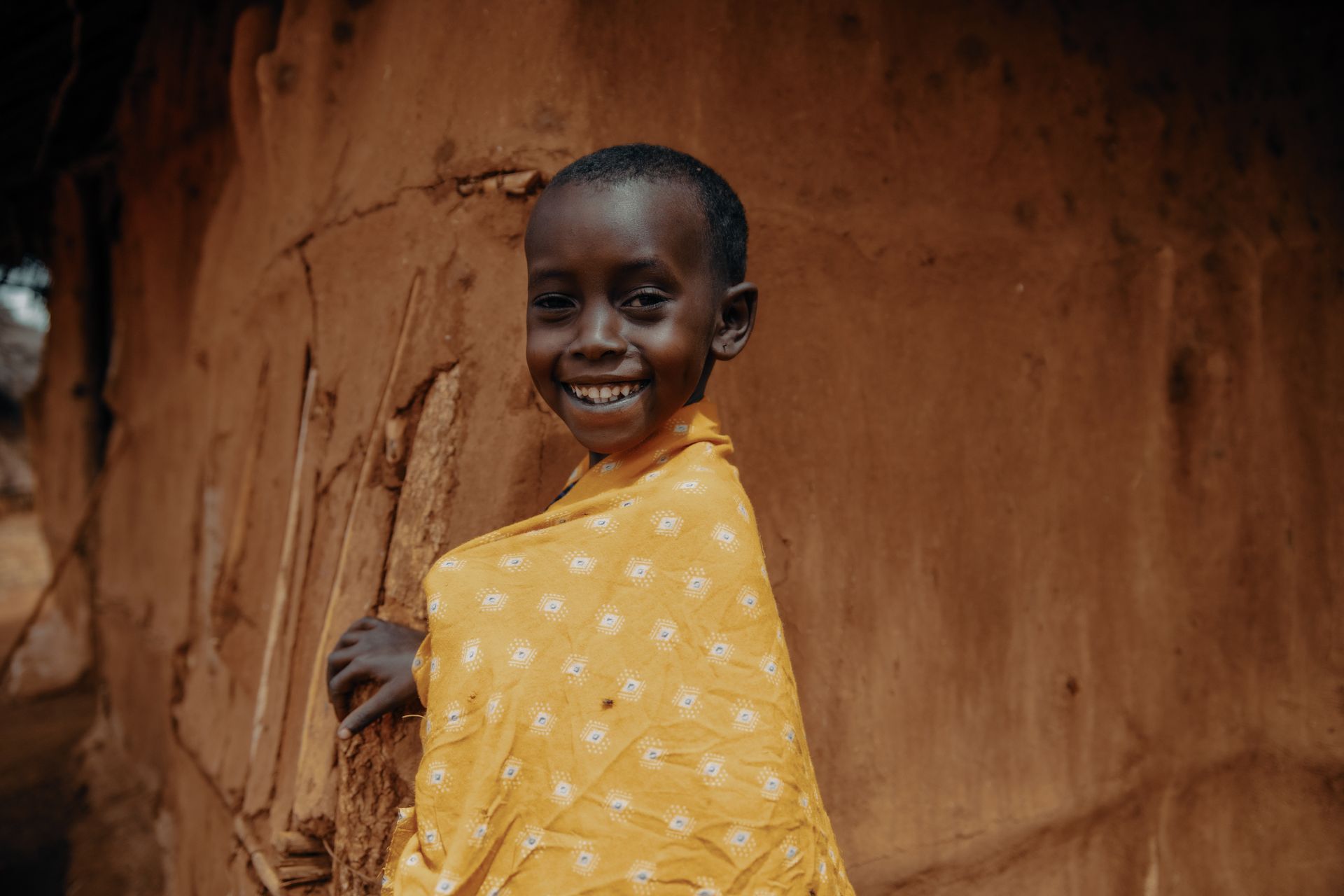
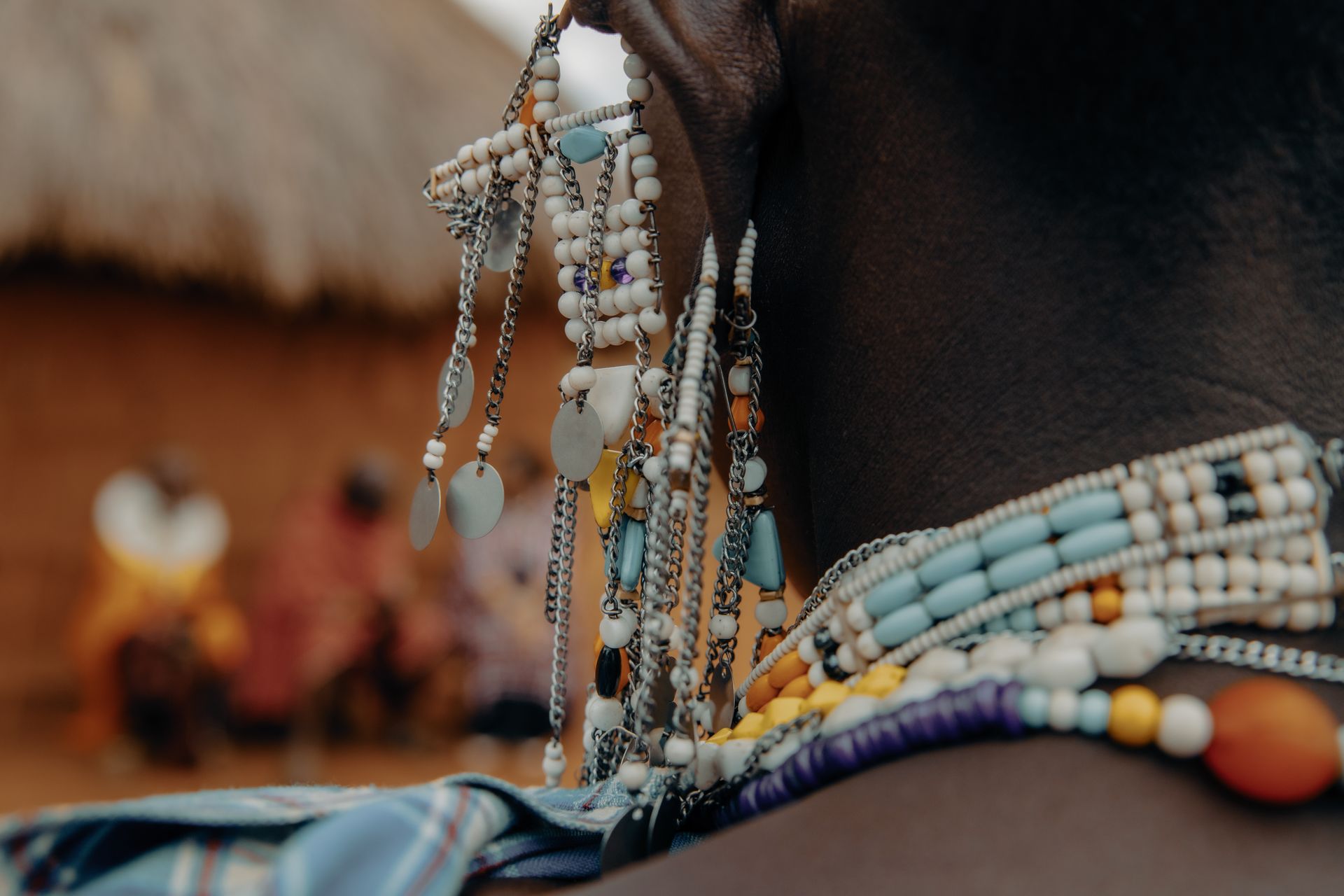
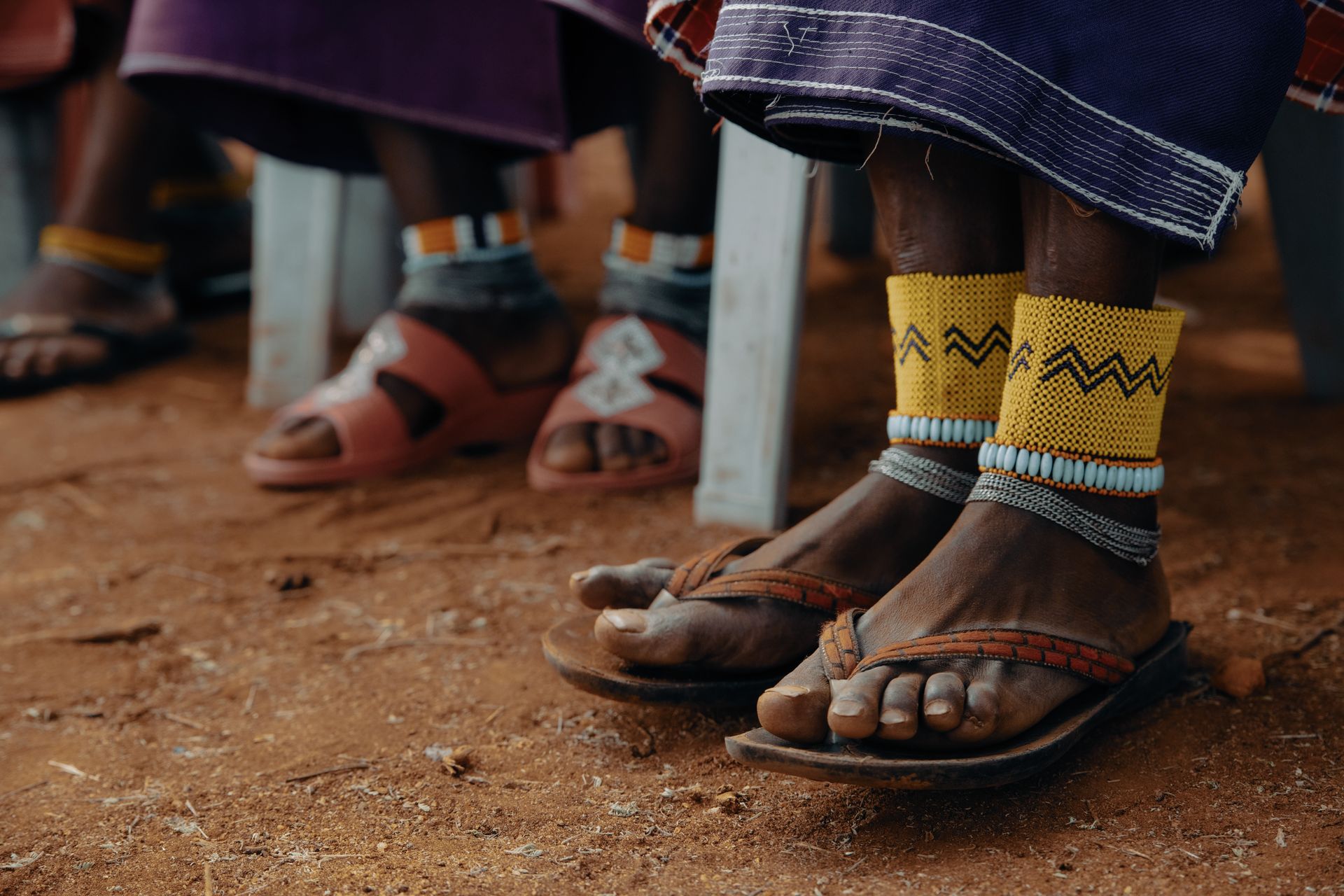
“I milked the cows and goats; I sang to the cows to relax them so they would give more milk. I was a girl who always sang and ate fruits on the trails with my sisters. Our mothers taught us to avoid elephants, buffalo and monkeys that would also go with us looking for water.” In Ndinini’s memories, Africa is not a ravaged, stripped-bare labyrinth divided by great empires. She tells slowly that those girls that looked for water, just as their ancestors, suffered dispossession, a colonial legacy that also brought them smallpox and famine. For her, Africa is the ancient cave, friendly, the sacred place of the world.
Education and Justice for Pastoral Girls
At the foot of Mount Meru stands a school with yellow walls and the Maasai coat of arms on the sides. Girls in neat school uniforms attend classes that blend modernity and ancestral customs inside their homes. The school is fertile ground with green gardens where each year between 80 and 100 African girls are saved, loved, and supported so they can face the world and, if they wish, return to their indigenous communities to give back what they learned in the heart of Tanzania.
The place is called Mobile Learning Lab and is part of the MWEDO organization, an initiative started by a group of women with the vision of addressing specific needs so that they could gradually achieve empowerment for all of them, through a solid social base and axes that always have as a premise community life through economic strengthening, justice and equity in the distribution of land ownership and access to education for the most disadvantaged shepherd girls throughout local history.
On this journey that began 25 years ago, 850 women have become landowners, and more than 6,300 have gained financial literacy and business skills through self-help groups.
" We had several fronts to focus our struggles on when we started the organization in 2000: gender equality and social inequality, but we also had many problems with human rights, specifically issues like the lack of education and illiteracy,” says Ndinini, proud that the initiative currently provides quality education, financial support for school fees, meals, school supplies, books, uniforms, housing, and food to Maasai girls in their first year of secondary school. This support has helped the girls achieve better performance every day in subjects that would have previously been a distant dream, such as math and science, chemistry and biology.
There is no purity in silence
Ndinini says that women help one another because they have faced all kinds of violence. “It’s instinct” she says, convinced. Even when they do not know how to name these traditions that are everyday tragedies, and all that remains is the pain of fighting against the knife blade for genital mutilation that has been mutilating them for centuries.
The girl from the Serengeti
Maasai girls often do not understand what is happening. They hide in acacia trees and when the final moment arrives, they cannot cry; they must not, that too is forbidden. She understands that among the women, it is about helping with the pain that descends on the womb, and without healing the girls could die at any moment from hemorrhage or infection. The struggle that gives meaning to her life is also against this initiation ritual of her people, a novitiate laden with silences: that long silence before the party, marriage, the celebration of femininity and beauty, a struggle against the normalization of pain so that girls remain pure, and that has been hurting them for generations.
A ritual that, according to data from the United Nations Children's Fund (UNICEF), has a national prevalence of 15 percent in Tanzania. Although there have been advances in the eradication of this dangerous practice, which can cause death and leave indelible psychological wounds on young girls, still in the northernmost part and rural areas of Manyara and northern Arusha, the percentage rises to 51 percent. A traditional ritual that despite being prohibited by law since 1998, is still carried out “discreetly” in the country.
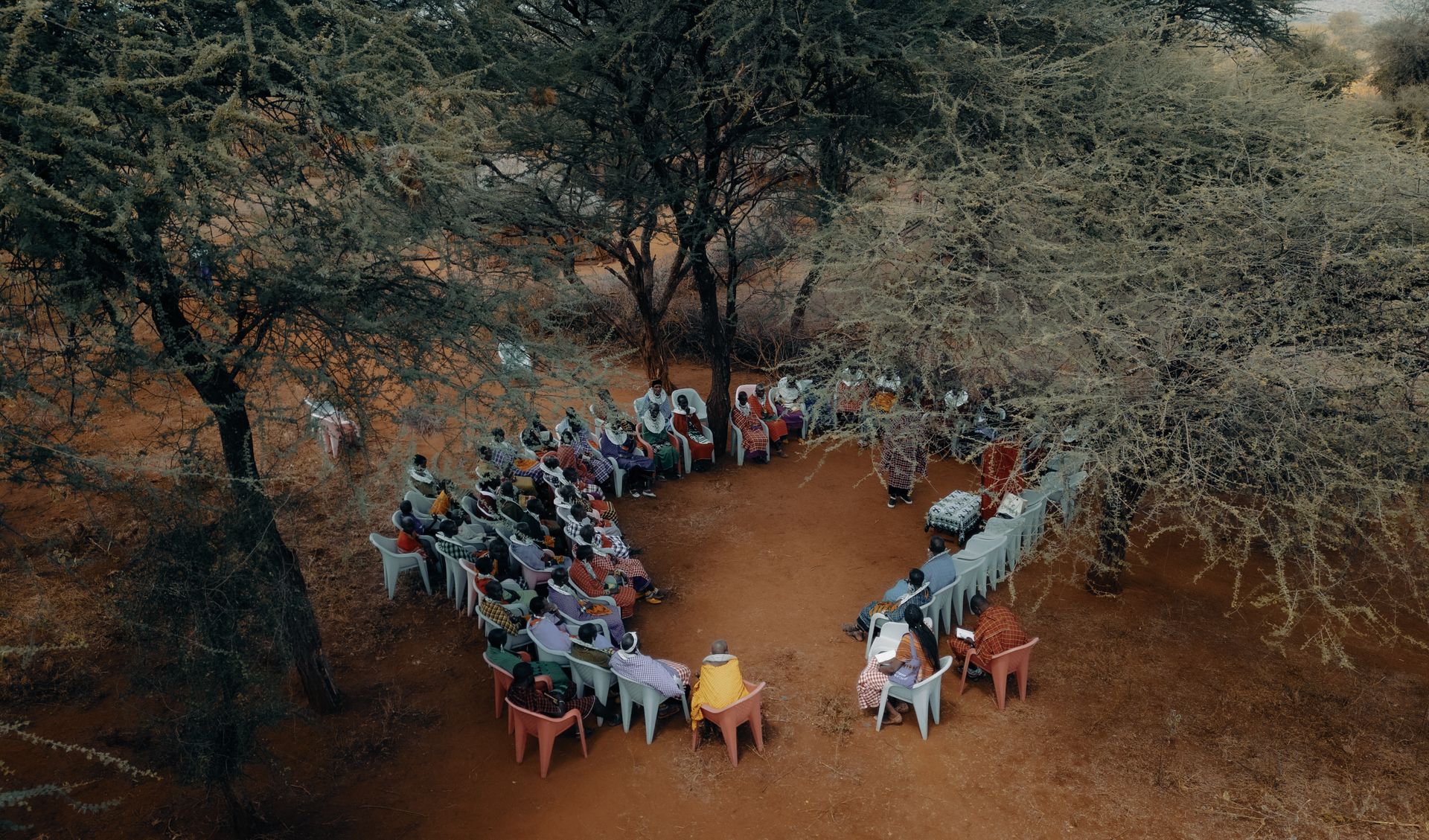
Spaces Against Pain and Loneliness
“How can we integrate the best of our childhood into a changing world?”, Ndinini often asks herself and others. It is a question that she raises at conferences, on her travels around the world as ambassador of an ancient people. In Arusha, she founded the Maasai Women Development Organization (MWEDO) in 2000, an organization that has provided scholarships to 25 thousand Maasai girls, with the support of the International Indigenous Women’s Forum (FIMI).
Ndinini maintains that in addition to her determination, access to education is what changed her destiny. An unexpected window into the world, that she now tries to replicated with the women of Tanzania.
“At 7 years old, the government chose me to go to school. I would not have gone on my own; the villages hide boys from outsiders to preserve the warrior tradition. My mother said she wouldn’t survive without me, I thought about staying behind to save her. In the end, my father gave me his blessing and I was able to go without any curse befalling me”, Ndinini is moved, perhaps it was chance, luck or a higher spirit emanating from the community. She went to the city with the promise to always return home.
“My husband I chose myself, in my modern family, with my children 27, 22 and 20 years old. We decided there would be education, there would be no more genital mutilation, and there would be no forced marriage”, she says, proud of what she holds in her hands.
In addition to access to education with her organization she has promoted clean and dignified maternity centers for young Tanzanians. These are spaces where girls give birth with trained midwives and can have traditional births that include the presence of the husband and many women accompanying the birth, spaces against pain and loneliness in a region where tradition can hurt them.
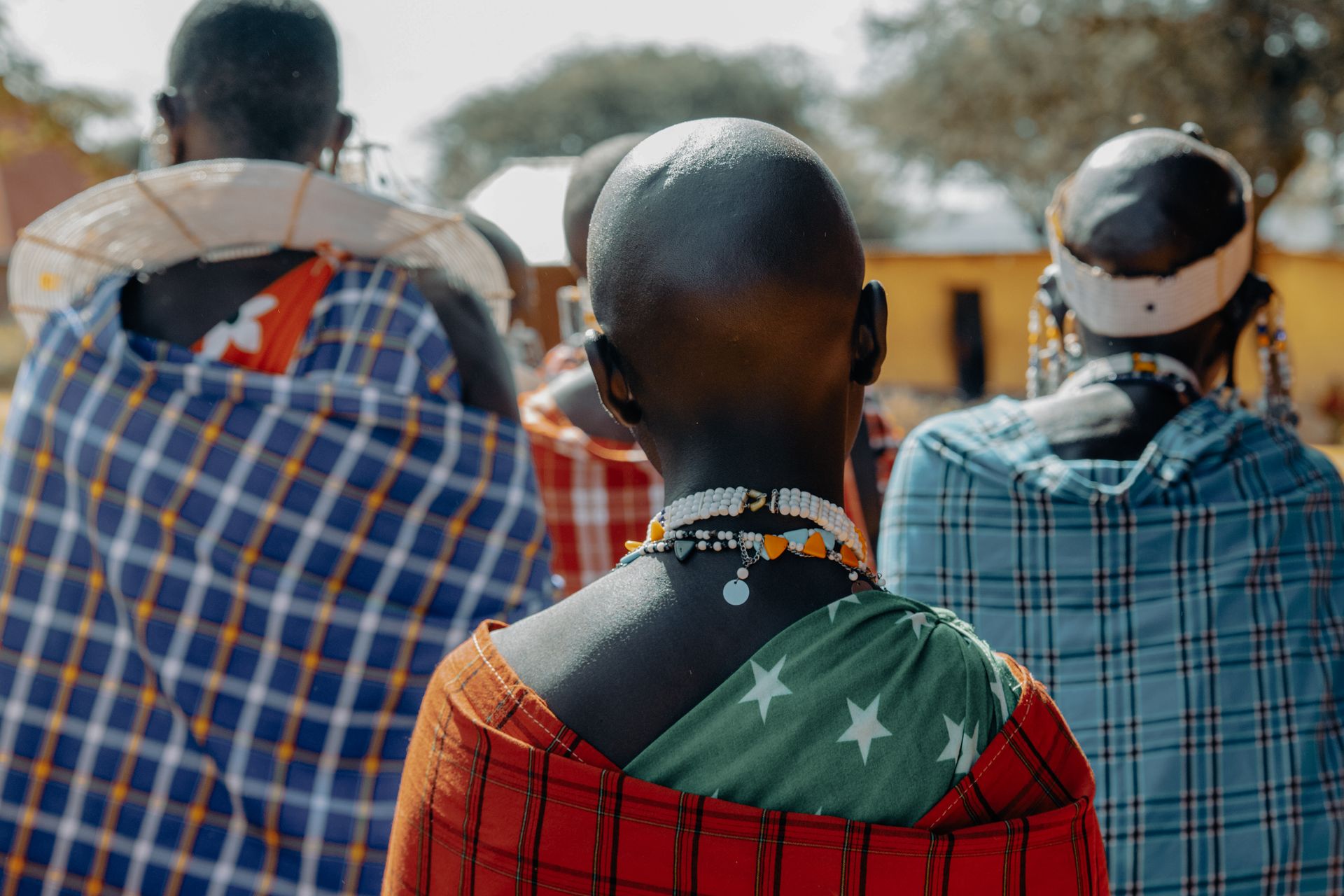
“Despite all the contradictions of the Maasai community, for me it’s a place where they cared for of me, they needed me and I belonged”, Ndinini reflects while behind her stands a towering hill, rows of baobabs, known as “the tree of life”, grow over the base of the mountain that extends into the distance.
On her face, there is a small smile that returns from the past, as if a new woman were looking from above, with her dark eyes, on what she has become. She holds in her hands all those women pastoralists who in the past arrived from the Nile River to inhabit the Serengeti. Now together, they can leave the dryness of the earth and feel the tropical rains of the present.
